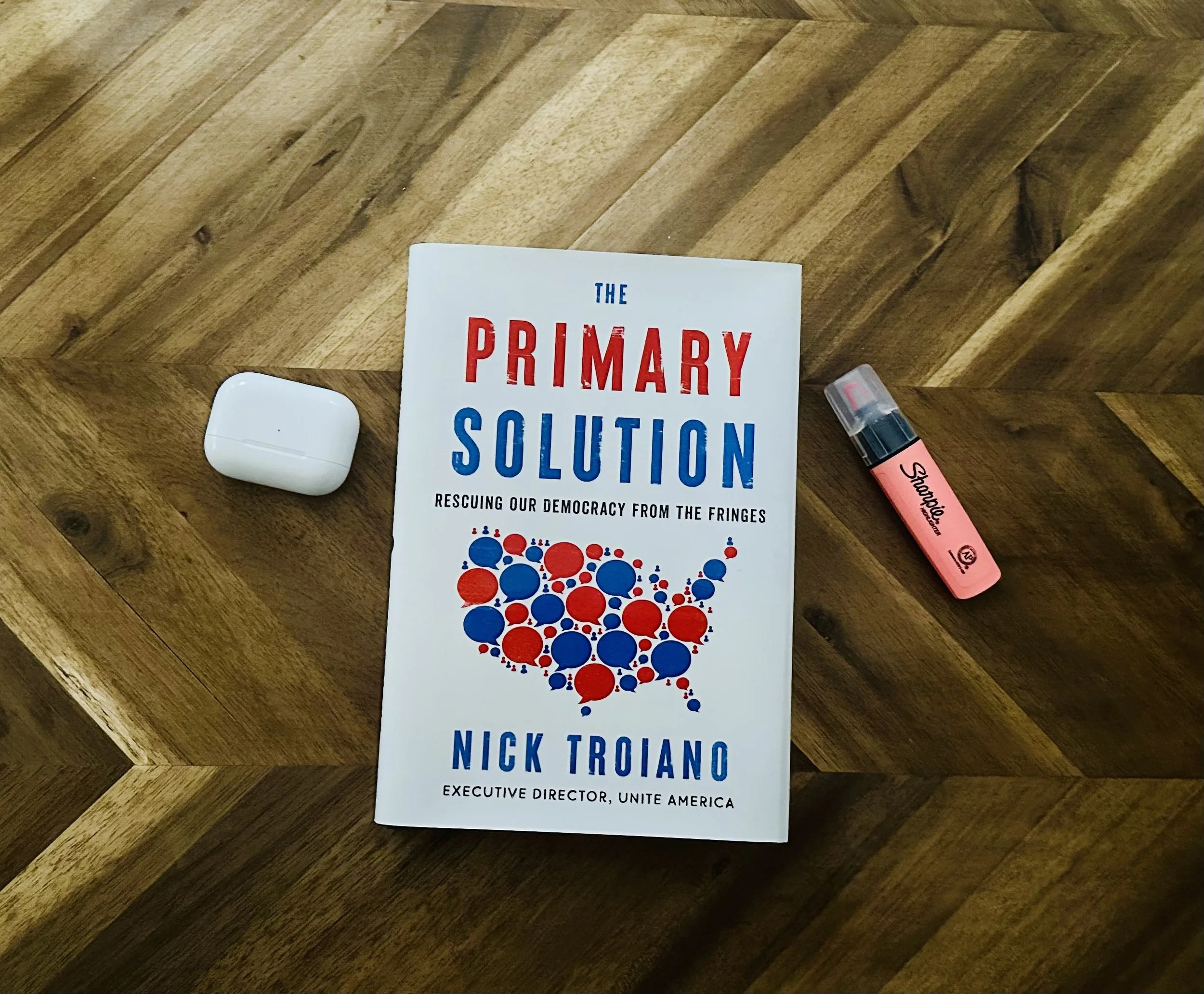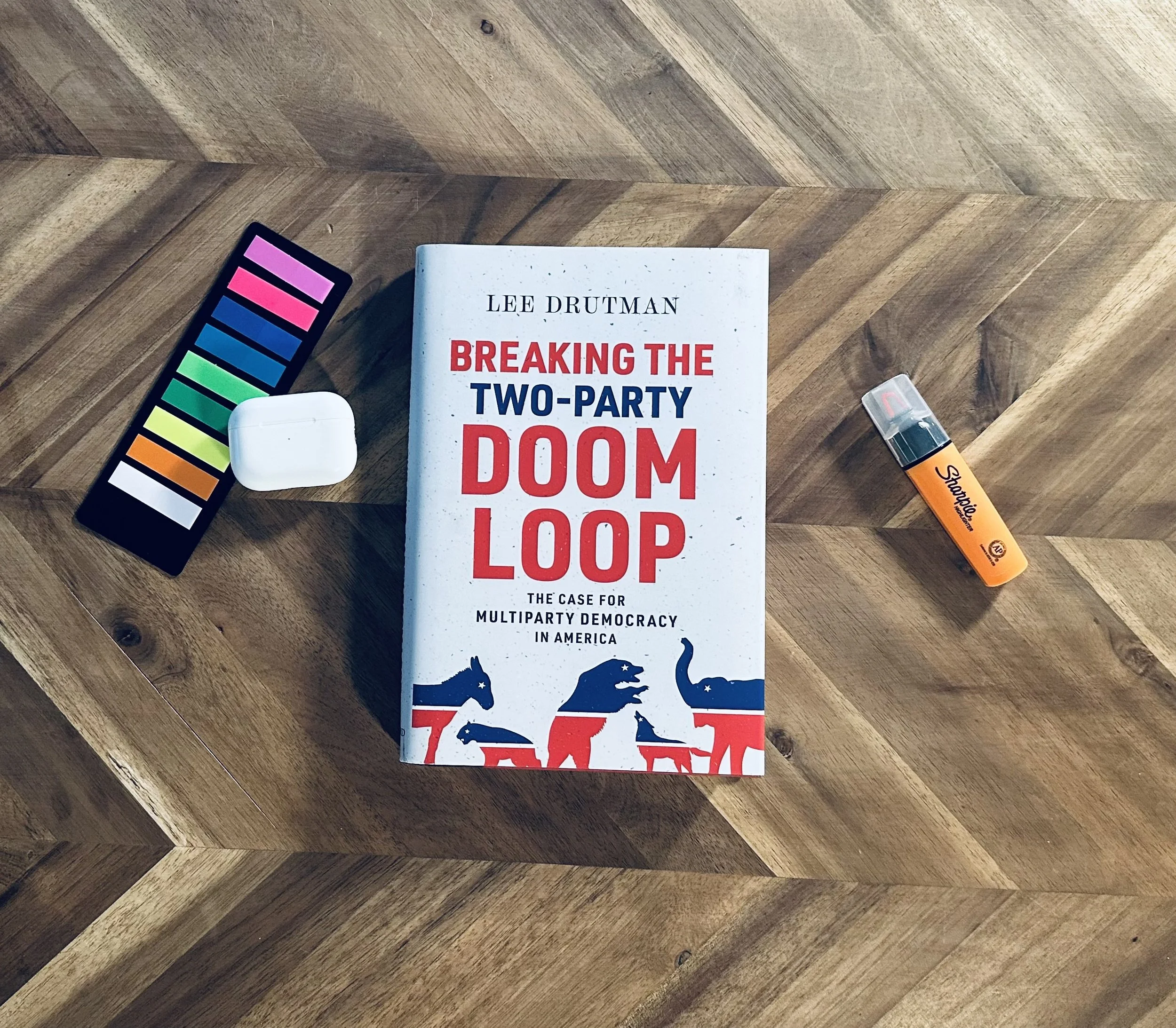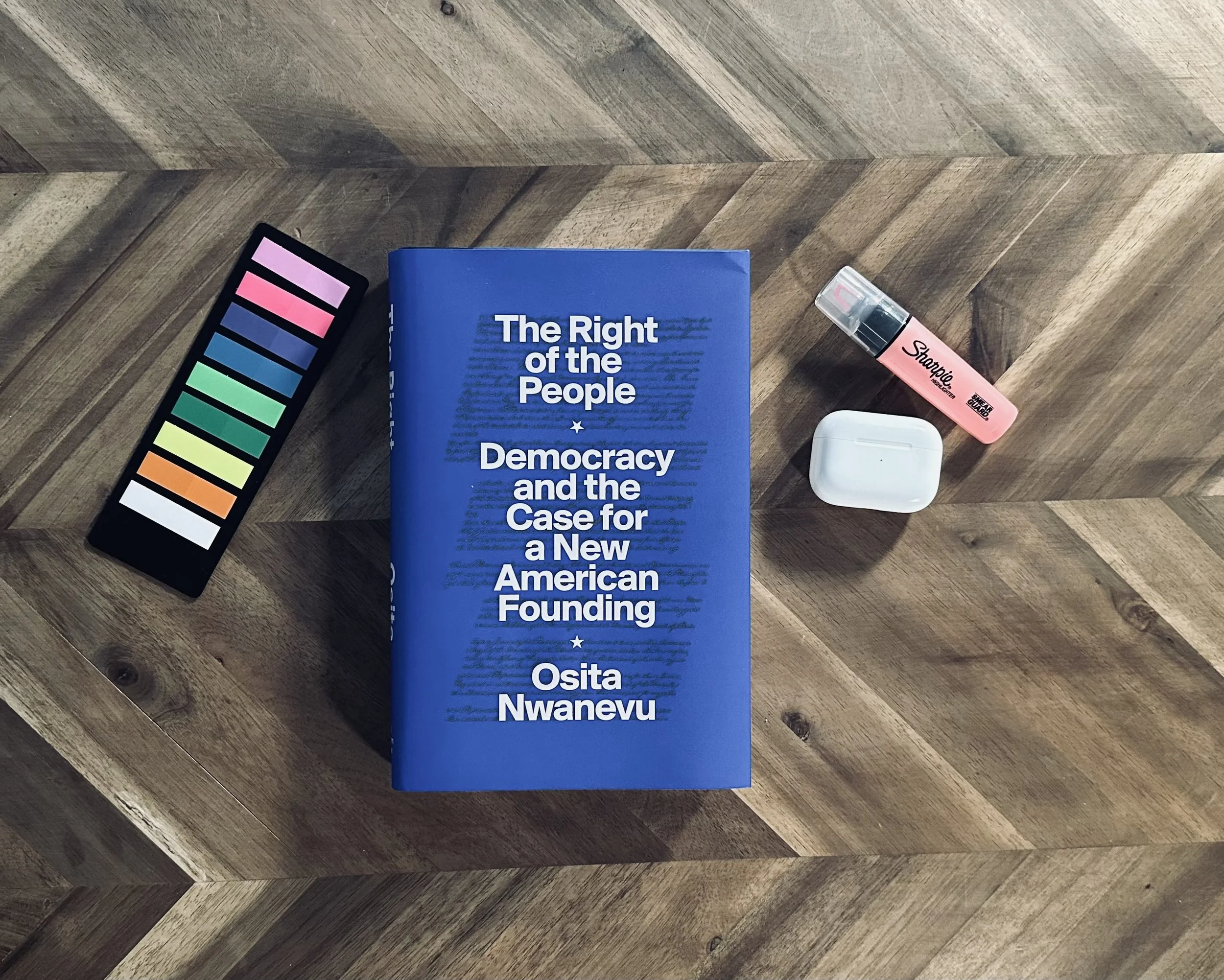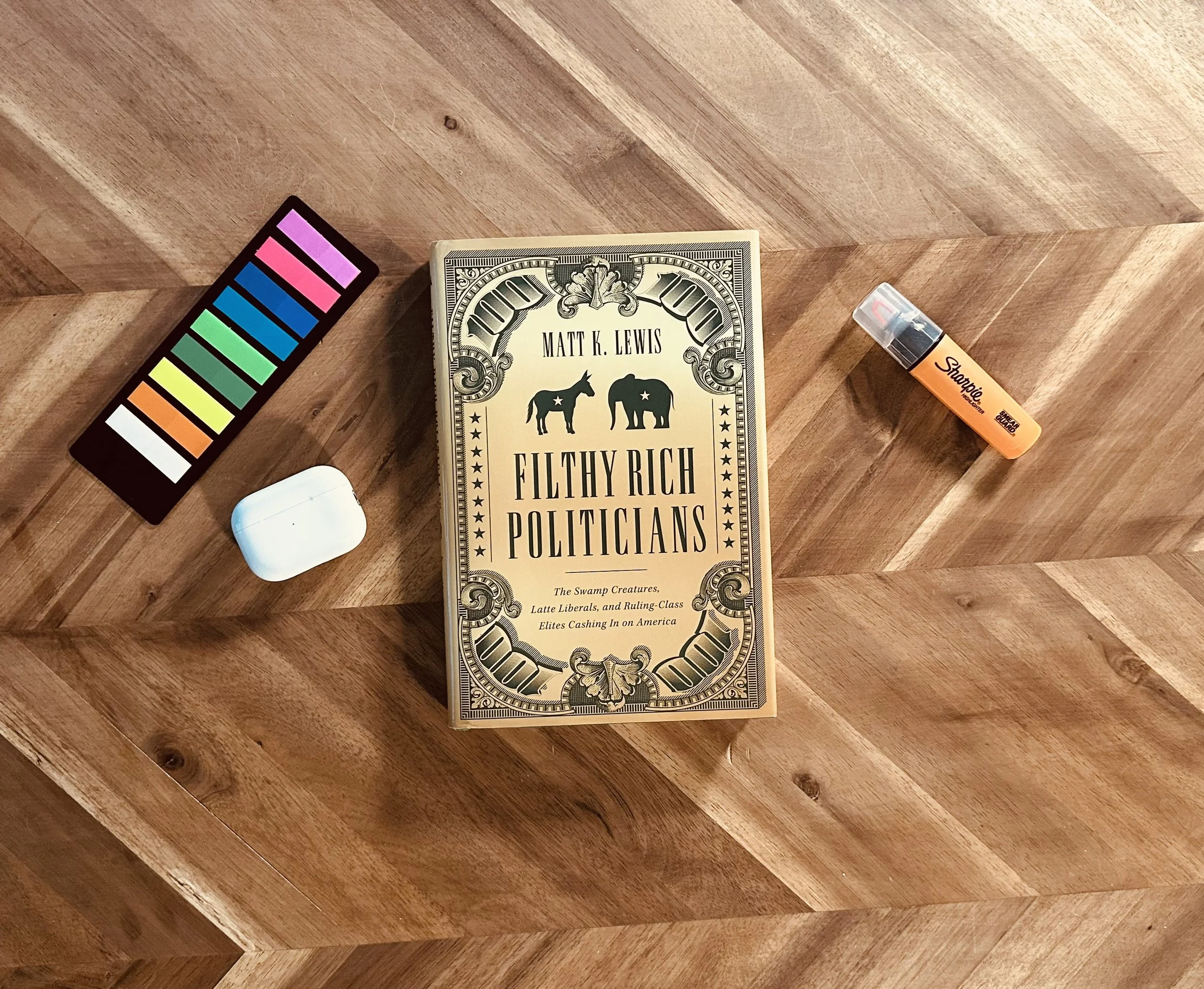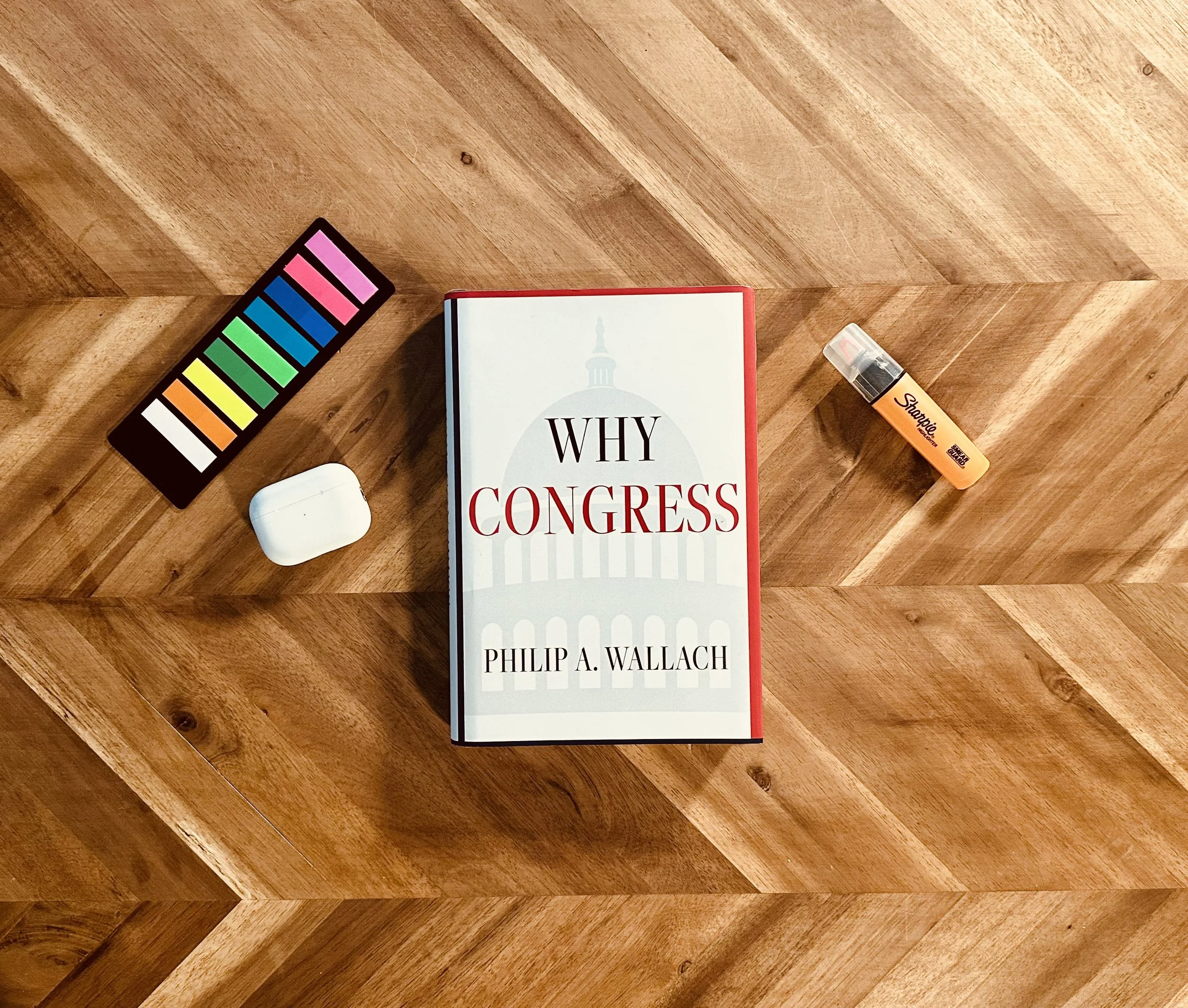The Representatives Reading List is a place for those who are tired of the fighting and are ready to roll up their sleeves and lend a hand.
The Primary Solution by Nick Troiano
The Primary Solution focuses on the way we elect candidates. It provides a history of primary elections from caucuses to direct primaries. It makes suggestions to the system, like Open Primaries and majority winners. It also shapes a step-by-step, state-by-state plan for reformers to follow. Breaking the Two-Party Doom Loop by Lee Drutman
Breaking the Two-Party Doom Loop dissects the stranglehold on power held by the Republican and Democratic Parties. It provides historical context along with an action plan to relieve the tension, advocating for Proportional Representation, Ranked Choice Voting, and increasing the size of the House of Representatives. The Right of the People by Osita Nwanevu
The Right of the People makes the case that America needs a new Founding through constitutional amendment or by writing a new constitution. It calls for a more democratic system, advocating to increase the size of the House, abolish the electoral college, and a constitutional amendment to overturn Citizens United. A Time to Build by Yuval Levin
A Time to Build reflects on our tendency to view key institutions—like Congress, universities, journalism, and government—as “performative” rather than “formative.” This erodes public trust and leads people to increasingly seek leaders who position themselves as outsiders, often in populist fashion. It encourages readers to repair our institutions, invest in their community, and support their family. It also advocates for increasing the size of the House. Filthy Rich Politicians by Matt Lewis
Filthy Rich Politicians examines how our elected leaders have amassed wealth from their power. Chapter by chapter, it tells stories of how the most important thing in politics has become money. How the rich are served and serve themselves. It advocates for increasing congressional representatives' pay and banning stock trading to reduce the incentive for corruption and attract higher-quality talent. Why Congress by Philip A. Wallach
Why Congress explores the importance of the legislature, it dissects Congressional problems while giving historical context. Sharing stories of legislative success, along with three possible futures for the body that include expanding the House. The Fractured Republic by Yuval Levin


